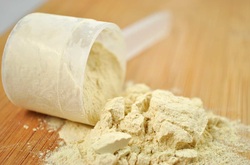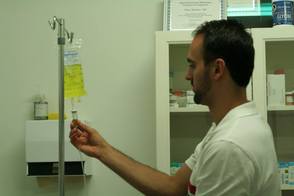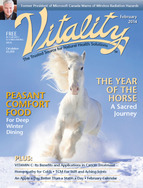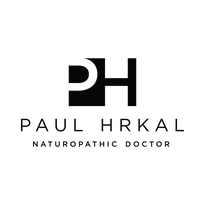 One of most controversial questions in the integrative oncology field is whether cancer patients should avoid whey protein. Some people contend that dairy products may increase the growth of cancer cells since they contain amino acids and growth factors. Dairy products do contain a molecule called insulin-like growth factor (IGF-1), which has the same activity as the naturally produced human form. As a clinician I recommend that patients avoid any foods that will up-regulate growth factors since that may contribute to the growth of cancer cells.1 So as part of an anti-cancer diet it would be prudent to avoid refined sugars (which also increases IGF-1 formation) and dairy products but does this apply to whey protein products as well? There really is no clear consensus on this question. The following are a few points we need to consider before forming an opinion. 1) It difficult to extrapolate data on food (milk products) to whey protein consumption. Milk contains much more IGF-1 than a good quality whey supplement. It also contains many other things that whey does not (fat, sugars etc.). Many people lump dairy products into the same category as whey but they actually are quite different and should not be considered the same. Just to be fair, some studies actually suggest that milk consumption has a cancer preventative effect (possibly due to calcium or immune stimulating compounds). 2) Whey and other animal protein consumption does increase IGF-1 levels in the blood.2 This actually occurs because the excess amino acids trigger the liver to produce our own IGF-1. Now this would be beneficial in an athlete or elderly person that is trying to build muscle mass but could it drive cancer? Interestingly, vegan proteins do not trigger IGF-1 and may actually reduce it.2 3) In some cases the anabolic nature of whey may be advantageous and even desired. For example, in cachexia (weight loss in cancer) whey protein is superior to veggie proteins (i.e. soy, rice etc.) in maintaining weight.3 Preventing or slowing weight loss in cancer is a very important therapeutic target. 4) A strong connection has been made between refined sugars, insulin stimulation, IGF-1 formation and cancer cell growth. Milk contains sugars such as galactose while whey protein does not. This is another strike against milk that does not necessarily apply to whey. On the flip side, a high protein, low carb (ketogenic) diets are often prescribed as an anti-cancer diet because it starves the cancer of sugars, which in turn does not increase insulin thus preventing growth factor formation.4 Whey protein is sometimes included as a part of this diet. 5) Milk contains casein, a protein has been suggested to strongly increase cancer growth according to Dr. T. Colin Campbell, the author of The China Study. This is quite controversial and some evidence actually suggests that casein and other milk protein may be cancer protective.5 Regardless, there is very little in whey. 6) Whey protein up-regulates glutathione production, a powerful cellular protector that prevents cancer formation, increases elimination of carcinogens and induces apoptosis.6 Vegan proteins do not increase glutathione in same as whey since they have lower levels of the amino acid cysteine, a key glutathione precursor. One interesting study that compared whey vs soy protein and found whey was superior in tumor prevention.7 7) American dairy products could contain recombinant Bovine Growth Hormone (rBGH) which is a VERY potent IGF-1 stimulator. rBGH is given to quickly stimulate the growth cows. It is unclear if this translates to whey protein but again this would primarily apply to dairy products and not whey. rBGH is not used in Canadian dairy cows. 8) Premier whey products (such as Advanced Whey Protein by AOR) contain lactoferrin and alpha-lactablumin, which have anti-cancer activity and stimulate the immune system.8 Emerging research is showing some impressive action against cancers such as non-small cell lung carcinoma.9 This adds a unique therapeutic angle that vegan proteins do not. Not every whey protein on the market has this added advantage so be sure to check. 9) Some people can have a food allergy or sensitivity to dairy and whey protein. This is not to be mistaken with lactose intolerance, which is an inability to digest lactose, a sugar found in dairy products. Dairy products, including whey protein, are common food allergens and if a person is sensitive then in may cause increased levels of inflammation and promote digestive irritation.10 Increasing inflammation is never a good idea for cancer patients so if you suspect dairy is causing you symptoms such as nasal congestion, headaches, bloating, gas or intestinal cramps then it would be best to avoid dairy or get tested by your naturopathic doctor. 10) Some people claim that the amino acid composition of whey protein contains more "acidic" amino acids, which promote a net acidic load on the body, impairing cellular function and potentially stimulating cancer growth. The acidic environment cancer theory is also controversial and I personally find the evidence weak for directly using alkalizing therapies but I do strongly advocate a diet high in vegetables and trace minerals (mg and k+) which are more alkaline and low in refined carbohydrates and meats which are acid forming. Considering the above points you can formulate your opinion if whey protein has an impact on cancer growth, positive or negative. I think the PROs outweigh the CONs and there are distinct advantages to using a high quality whey protein. An important point is that the type of protein you use may vary on personal preference, stage of cancer and if you have a food sensitivity to whey. After that, the choice is up to you. References 1) Cohen, Pinchas, et al. Insulin-like growth factors (IGFs), IGF receptors, and IGF-binding proteins in primary cultures of prostate epithelial cells. Journal of Clinical Endocrinology and Metabolism, Vol. 73, No. 2, 1991, pp. 401-07 2) Allen NE, Appleby PN, Davey GK, Kaaks R, Rinaldi S, Key TJ. The associations of diet with serum insulin-like growth factor I and its main binding proteins in 292 women meat-eaters, vegetarians, and vegans. Cancer Epidemiol Biomarkers Prev. 2002 Nov;11(11):1441-8. 3) Dillon et al. Cancer cachexia and anabolic interventions: a case report. J Cachexia Sarcopenia Muscle. 2012 Dec;3(4):253-63. 4) Victor W. Ho et al. A Low Carbohydrate, High Protein Diet Slows Tumor Growth and Prevents Cancer Initiation; Cancer Res July 1, 2011 71; 4484; 5) Phelan M1, Aisling Aherne S, O'Sullivan D, FitzGerald RJ, O'Brien NM. Growth inhibitory effects of casein hydrolysates on human cancer cell lines. J Dairy Res. 2010 May;77(2):176-82. 6) Bounous G1, Batist G, Gold P. Whey proteins in cancer prevention. Cancer Lett. 1991 May 1;57(2):91-4. 7) Hakkak R1, Korourian S, Shelnutt SR, Lensing S, Ronis MJ, Badger TM. Diets containing whey proteins or soy protein isolate protect against 7,12-dimethylbenz(a)anthracene-induced mammary tumors in female rats. Cancer Epidemiol Biomarkers Prev. 2000 Jan;9(1):113-7. 8) Pepe G1, Tenore GC, Mastrocinque R, Stusio P, Campiglia P. Potential anticarcinogenic peptides from bovine milk. J Amino Acids. 2013;2013:939804. doi: 10.1155/2013/939804. Epub 2013 Feb 26. 9) Rodrigues L1, Teixeira J, Schmitt F, Paulsson M, Månsson HL. Lactoferrin and cancer disease prevention. Crit Rev Food Sci Nutr. 2009 Mar;49(3):203-17. 10) Grant EC. Food allergies and migraine. Lancet. 1979 May 5;1(8123):966-9.
2 Comments
 I have written extensively on the evidence supporting intravenous (IV) vitamin C used in combination with chemotherapy. This past week another study has shown a positive effect as a combo. It looked at ovarian cancer cells in mice that were given IV doses of vitamin C plus 2 commonly used chemo drugs, paclitaxel and carboplatin. They found the combo synergistically inhibited the cancer cells. The researchers stated that vitamin C increases the level of hydrogen peroxide which cancer cells are not able to deal with. This damages their DNA and causes them to die. Normal cells are unaffected by this since they are not dividing as quickly so their DNA is not as vulnerable. This is why vitamin C has very little side effects even when given in high IV doses. The same research group also went further and gave the vitamin C and chemo combo to 25 ovarian cancer patients. The results after 12 months were less side effects (bone marrow suppression, kidney/lung/liver damage, and nerve damage in the group that received vitamin C vs just chemo. The survival times were also 8.75 months longer in the vitamin C group compared with the placebo group. This evidence supports the combination of a vitamin C along with chemotherapy. Now conventional medicine is starting to see that natural substances like vitamin C do not interfere with chemo as previously thought but actually improve outcomes. I think most cancer patients can really benefit from this therapy since its relatively inexpensive, very safe and now shown again to be effective. More studies are needed to confirm its use in other cancer types but these results are much needed and very promising. In health, Dr Paul Hrkal Full article and commentary Article abstract: http://stm.sciencemag.org/content/6/222/222ra18 More information on Vitamin C New Research – High dose vitamin C shows promising Anti-Cancer Effect Vitamin C: IV vs oral - its all in the delivery! The Dual Action of Vitamin C in Cancer Therapy Dr Hrkal's recent article in vitality magazine |
Welcome To My Blog
My goal is to post thought-provoking and informative articles so you can learn and apply the latest news from the world of natural health. Feel free to post comments and start a conversation. Stay tuned to my twitter and facebook feeds for the latest posts.
Archives
December 2015
|


 RSS Feed
RSS Feed

